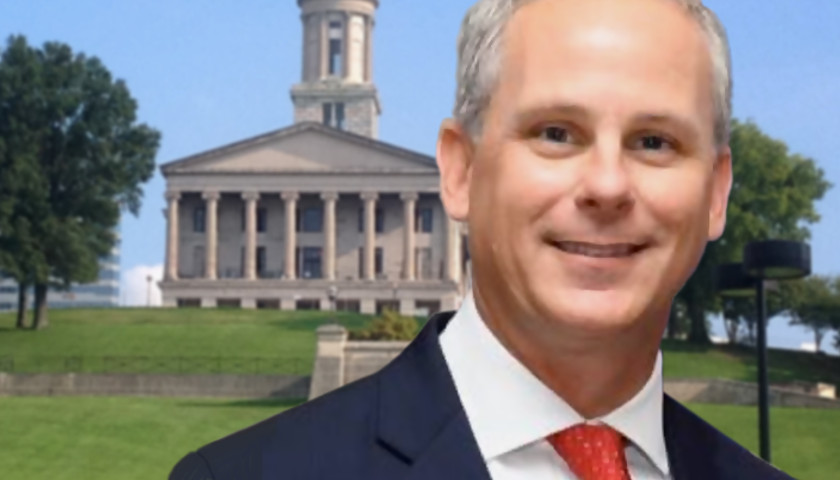by Vivian Jones
The Tennessee Legislature is considering the removal of a $400 annual “privilege tax” on certain professions in Tennessee.
The state levies an annual $400 professional privilege tax on individuals licensed or registered to practice in any of seven professions: attorneys, securities agents, broker-dealers, investment advisers, lobbyists, doctors and osteopathic physicians.
Senate Bill 884 would eliminate the tax for attorneys, physicians, investment advisers and lobbyists. State Sen. John Stevens (R-Huntingdon) (pictured above) who sponsors the bill, said the legislation is likely to change as the Legislature continues budget negotiations in the coming weeks.
“This bill is designed to be a vehicle for the elimination of the professional privilege tax,” Stevens said Tuesday during a Senate Finance, Ways and Means Revenue Subcommittee.
The bill received a positive recommendation from the subcommittee with bipartisan support during the committee’s last meeting of the legislative session.
Tennessee’s professional privilege tax previously was levied on 22 professions, including accountants, architects, dentists, pharmacists and veterinarians. The General Assembly approved legislation in 2019 to eliminate the tax for 15 of the 22 professions.
Nearly 200,000 professionals pay Tennessee’s professional privilege tax. Total elimination of the tax would cost the state about $67 million in revenue, Stevens said.
During Tuesday’s committee meeting, State Sen. Todd Gardenhire (R-Chattanooga) said 77% of the people who pay the tax live outside the state, accounting for about $57 million in tax revenue.
“This is a recurring revenue stream,” Gardenhire said. “Tell me what recurring expenses you’re going to cut to offset $57 million from out of state people paying this.”
Stevens agreed that with any decrease to state revenue there should be a corresponding programing cut, but cuts would be negotiated as budget discussions continue.
“It would likely not be constitutional to treat those out-of-state folks differently than the in-state folks,” Stevens said.
A companion bill in the House has been placed behind the budget.
– – –
Vivian Jones is a regular contributor to The Center Square.




These ridiculous taxes are nothing more than ill-gotten gains. These people act like it’s THEIR money that they are entitled to. Nonsense! Need the additional revenue? Star eliminating waste. But you know that won’t happen.
And the money will flow from the lobbyists to the politicians, this will be a cash cow for the politicians. Who ever gives me the most money is how my decision is made $$$
What is unconstitutional about taxing people who live in the state differently than those living within it ? State Sen. John Stevens says that’s likely not constitutional. Why not? Why are lobbyists getting this tax break? These people should be taxed a lot, for all they cost us!!
What a joke! I can’t believe that this kind of thing has to get more than a 30 second discussion by these crooks! Do they know who ultimately pays for the priviledge tax that is accessed on these professions? We citizens/voters do! The business ultimately passes the cost of any “expense” on to us, or they go out of business!
And, what about the billion dollar plus “surplus” for which the State is already “over taxing” us? These so-called Republicans need to be sent home permanently, and replaced with true fiscal and social conservative ones!
Cut programs ?? Government spending is so wasteful , they will never miss the money – who does Mr. Gardenhire think he’s fooling ?
Gardenhire IS a fool. He should have been voted out of office years ago.
Agreed.
Gardenhire is awful.
This is smart legislation.
There is nothing about these practices which relates to the underlying taxes.